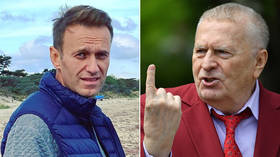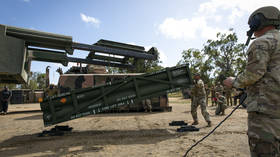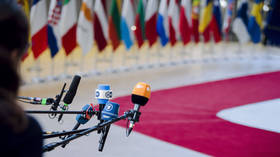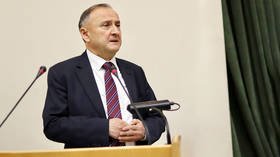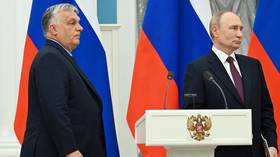EU sanctions six senior Russian officials over Navalny 'poisoning,' claims they knew of alleged Novichok use on opposition figure
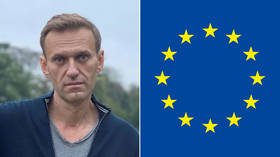
The EU has imposed penalties on six Russian officials over the alleged “assassination attempt” on anti-corruption campaigner Alexey Navalny. They are now banned from entering the bloc and any assets they have there will be frozen.
Eurocrats insist that those on the list had direct knowledge of the supposed attack on Navalny in August, or were themselves involved in its planning.
Of the six sanctioned, the two most prominent are the deputy head of the Presidential Administration, Sergey Kirienko, and the Director of the Federal Security Service (FSB) Alexander Bortnikov. Kirienko became the youngest prime minister of Russia in 1998, when Boris Yeltsin handed him the post at just 35 years old. He has long been regarded as a pro-Western liberal figure.
Presidential Administration official Andrey Yarin, Siberian Presidential Envoy Sergey Menyailo, and Deputy Defense Ministers Alexey Krivoruchko and Pavel Popov were also sanctioned.
According to the official document, it is “reasonable to conclude” that the poisoning was conducted with the knowledge of the six named targets. In particular, Kirienko is accused of “inducing and providing support to the persons who carried out or were involved in the poisoning,” and Bortnikov is said to have been “providing support.” Bortnikov is already under another set of EU sanctions, after being targeted following the conflict in Eastern Ukraine.
The measures also restrict the State Research Institute of Organic Chemistry and Technology, believed by the EU to be the source of the lethal nerve agent Novichok that was allegedly ingested by Navalny. According to the EU, the institute was tasked with “the destruction of chemical weapons stocks,” and therefore a poisoning by Novichok would only be possible “due to the failure of the Institute to carry out its responsibility.”
On Wednesday, Russian Foreign Minister Sergey Lavrov promised that Moscow would respond to any EU sanctions “in a mirror-like manner.”
Also on rt.com OPCW says it found traces of Novichok-class substance in blood & urine samples of Russian opposition figure Alexey NavalnyOn August 20, Navalny fell ill on a flight from Tomsk to Moscow. After an emergency landing in Omsk, Navalny was taken to a local hospital, where he was placed in an induced coma. Two days later, the opposition figure was flown to the Charite clinic in Berlin at the request of his family and associates. After testing, German toxicologists determined that the activist had been poisoned with a substance from the Novichok group of nerve agents. This claim has been denied by Russian doctors, who say that they did not find any trace of poison in his body. On September 23, Navalny was discharged from the hospital and is expected to make a full recovery. Rehabilitation will take several weeks, after which he says he plans to return to Russia.
Like this story? Share it with a friend!
